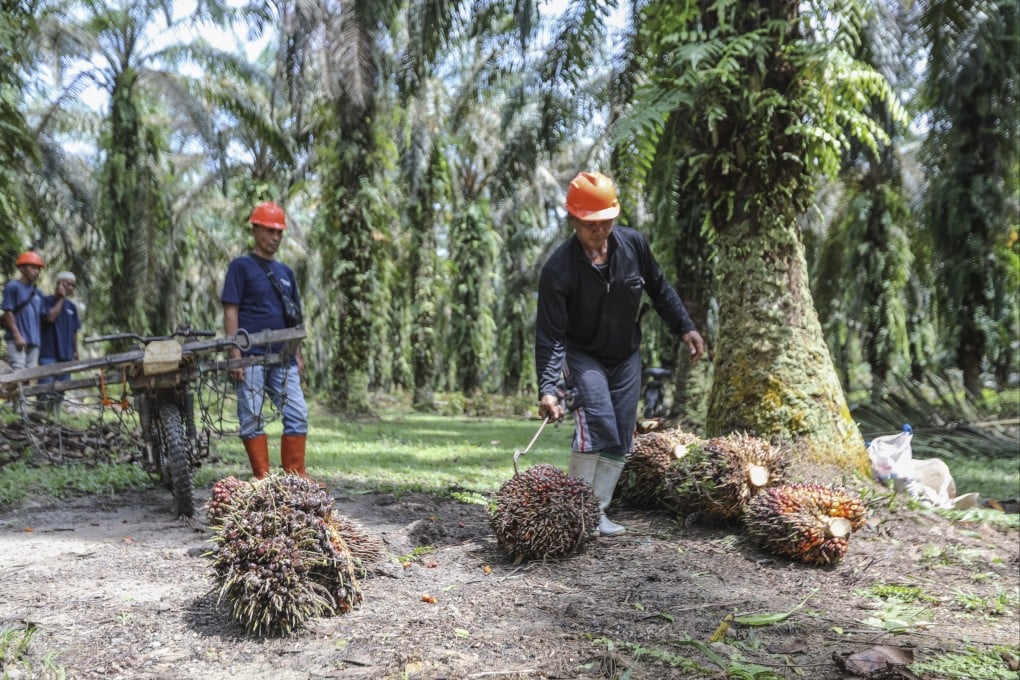Indonesia’s palm oil sector worries over costs, security after EU deforestation law delay
The world’s biggest palm oil producer plans to hold more talks with the EU ahead of its deforestation law taking effect on December 30, 2025

Originally set to take effect on December 30, the EU Deforestation Regulation (EUDR) requires that commodities such as palm oil, timber, soybeans, coffee and cattle sold in EU markets must not come from land deforested or degraded after December 31, 2020.
Last Wednesday, the European Commission proposed delaying enforcement of the regulation to December 30, 2025, to “give concerned parties additional time to prepare”, pending approval from the European Parliament and Council.
Airlangga Hartarto, Indonesia’s coordinating minister for economic affairs, said the postponement was likely due to pressure from Indonesia, the US, Germany and the World Trade Organization.
“For Indonesia, what is important is the implementation of the policy, not just it being postponed,” he told reporters on Thursday.

The minister highlighted concerns about the EU’s demand for detailed geolocation data on agricultural land. He warned that foreign access to such data could pose security risks.
